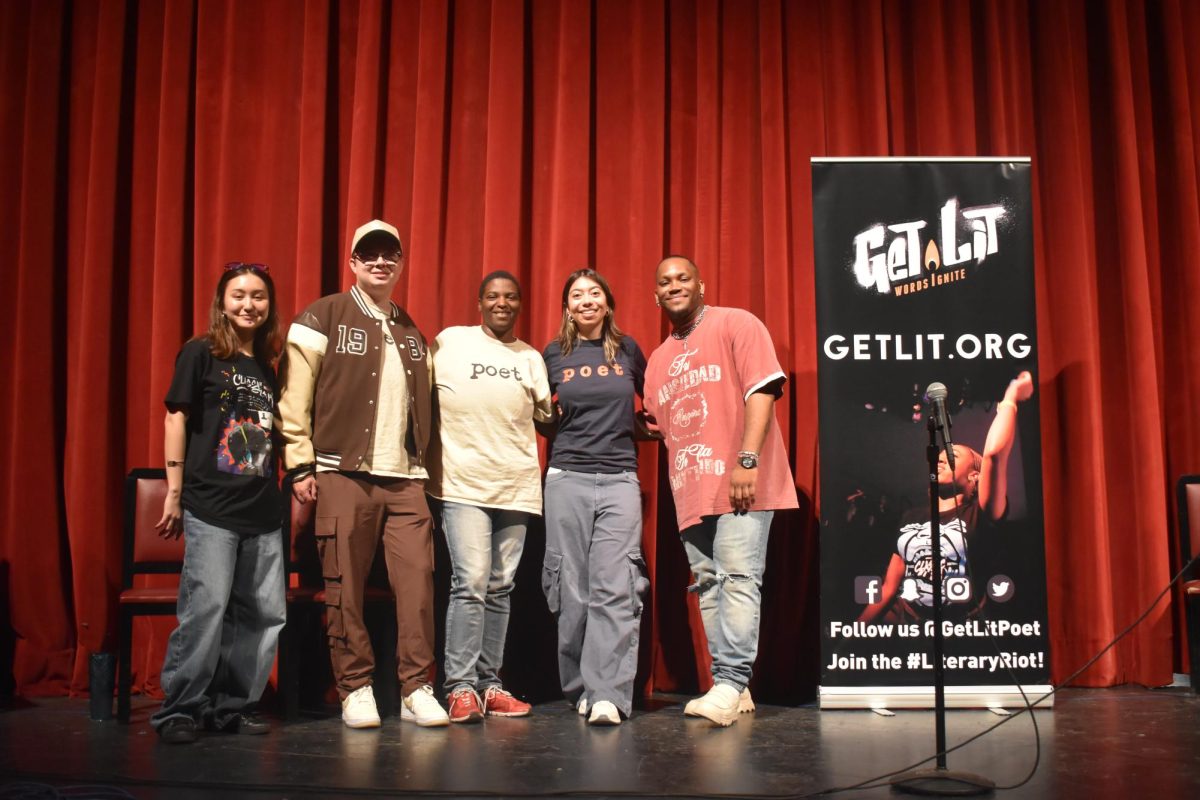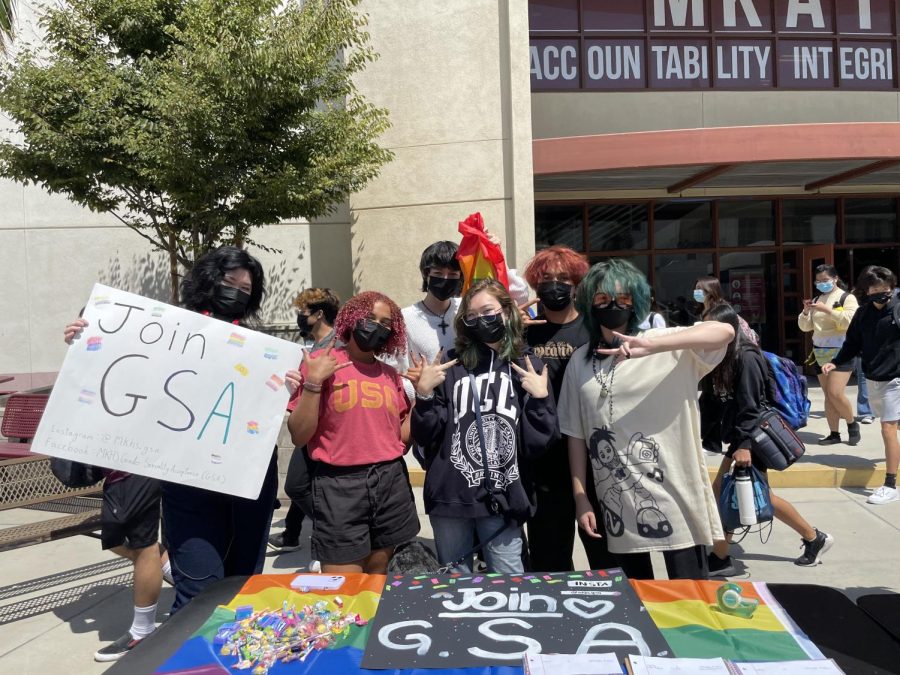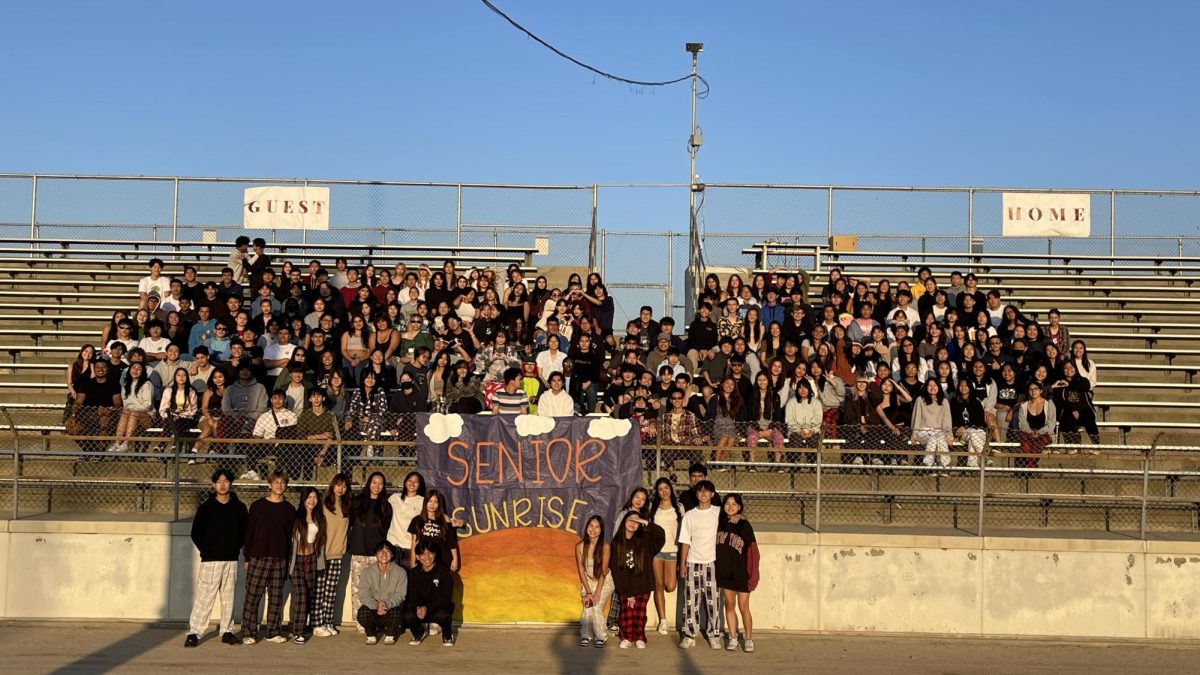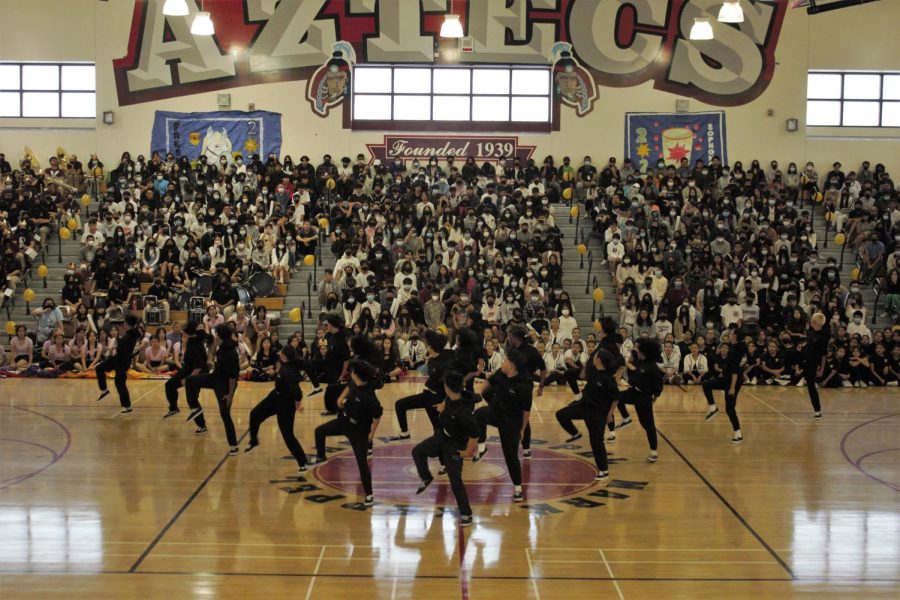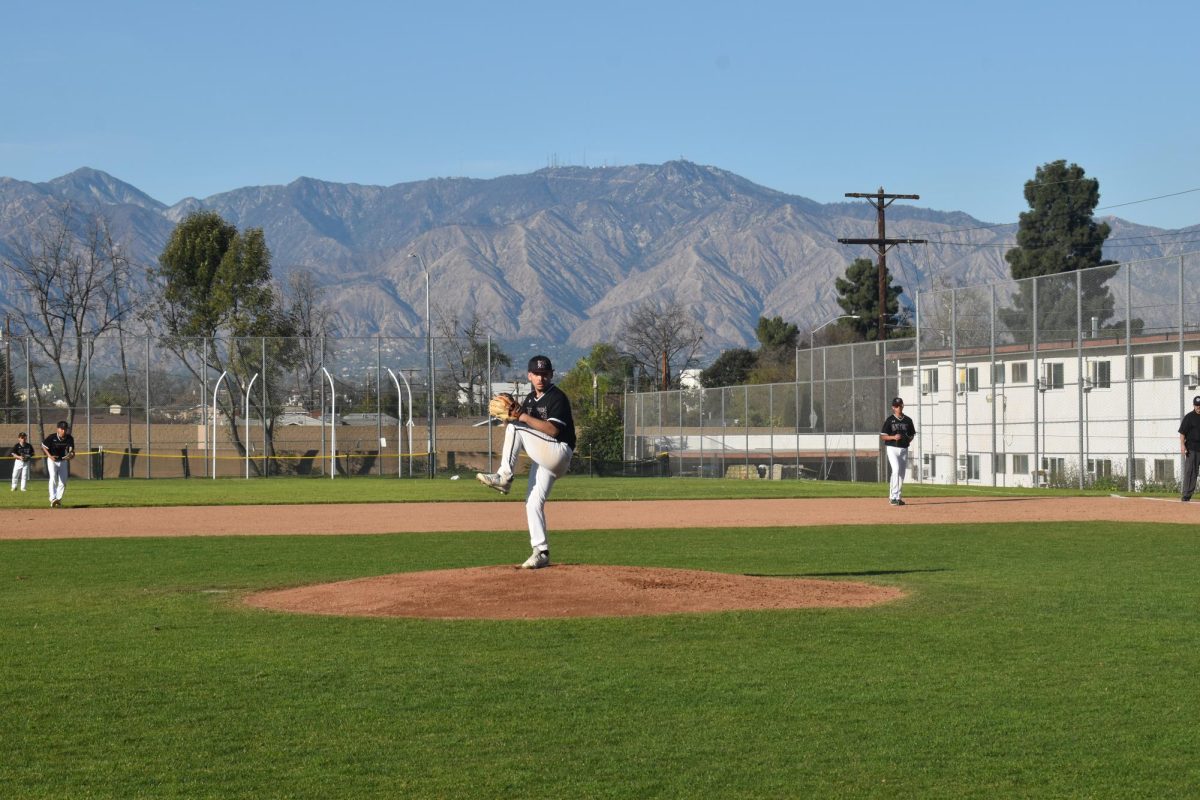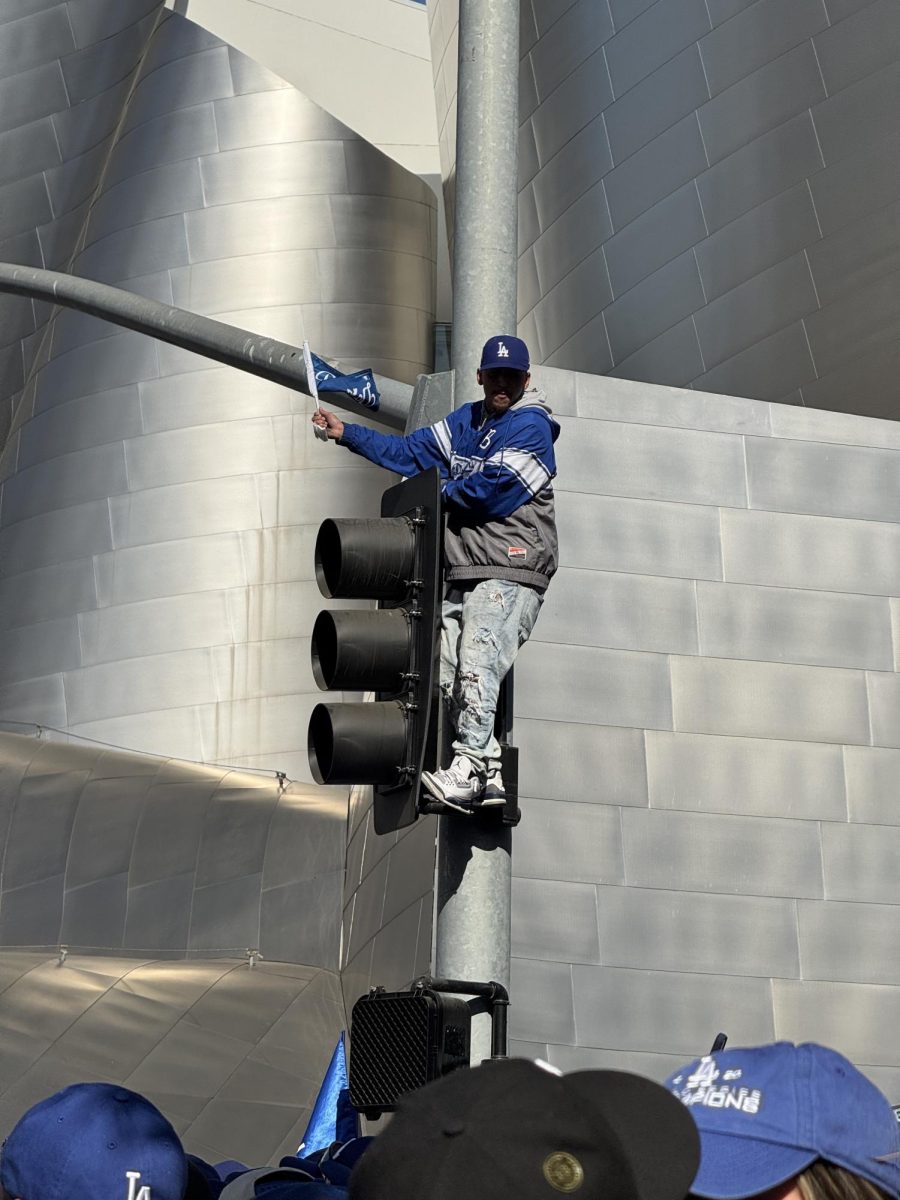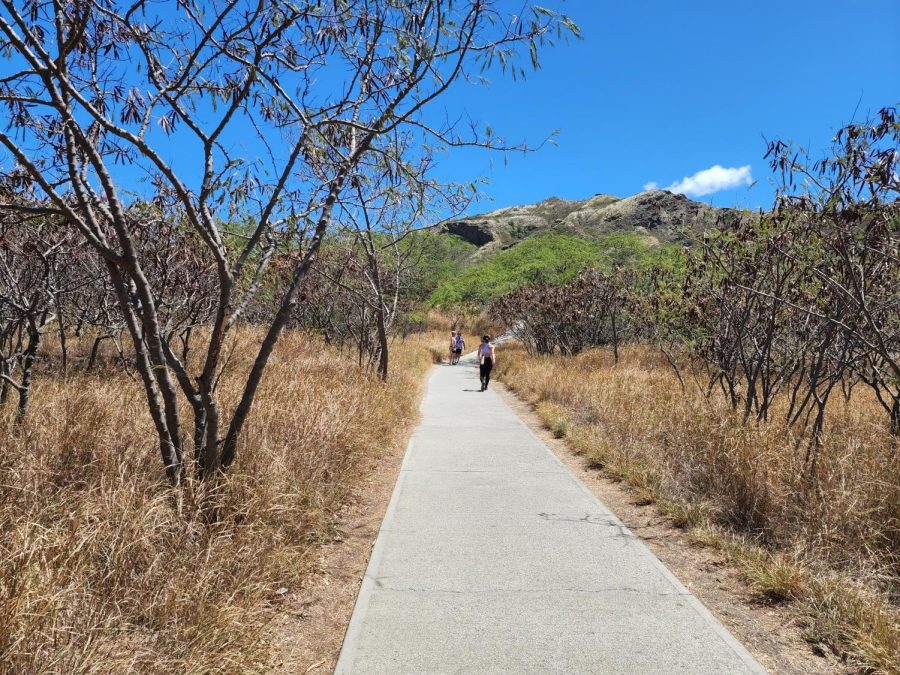Climate Change: Three Degrees Makes All the Difference
Photo by Machu Suh
Diamondhead trail, O’ahu, Hawaii
November 28, 2022
Three degrees. By just three degrees, the world’s oceans begin to rise, icebergs melt, droughts worsen, and life cannot exist. Since 1950, the Earth’s average temperature has risen by a single degree. Numerically, that does not seem drastic, yet on a global scale, these effects have fundamentally changed human nature. Countries in Europe are facing one of the worst droughts in history, and recent record-breaking rainfall in South Korea has caused deadly flooding, and now a stunning new report that in California, the one thing more dangerous than an earthquake, is a flood. Regardless of its effects on the world, climate change continues to be a major debate in the United States, roughly falling on party lines.
In Europe, rivers and lakes are drying up, and words of warning from native settlers give an eerie foreshadowing for humanity. All over Central Europe, large boulders known as “hunger stones” have begun to emerge in bodies of water. These hunger stones were used over the millenia to identify times of great drought and famine, hence the name. Now in a time of intense climate change, these messages hold a far greater meaning. Scrawled on a stone in Denmark, a cautionary message alerts, “If you see me, cry.” While hunger stones have appeared before due to other droughts and construction on rivers, this time has a heavier and deeper meaning behind it. In an online press conference for the European Commission Joint Research Centre, senior researcher, Andrea Toreti, shared a troubling report. “Just to give you an idea the 2018 drought was so extreme that, looking back at least the last 500 years, there were no other events similar to the drought of 2018, but this year I think it is really worse than 2018.” This drought in Europe is predicted to be the worst drought in the past 500 years, right off the tails of another major drought in 2018.
In Korea, the exact opposite is happening. On August 8, Seoul, the capital of Korea, faced the heaviest rains it has seen in over 80 years. Korean citizens and tourists alike were swept away in the rivers of water formed by the record-breaking weather. Former AUSD student, Hannah Jeon, who now resides in Seoul, South Korea, commented to the Aztec about the damage that the flood waters caused, as well as her own personal experience. Via text, Jeon informed, “I’m not an expert… but as far as I know and saw, I almost drowned. That was definitely one sign of abnormal climate change. It rained for three days straight, and it was heavy rain… Also the summer is noticeably hotter, and winter is much colder.” Nine people were confirmed to have died during the flooding, and many more are still missing. During the flooding, people hid in their basements, which began to fill with water and drown those who were unlucky. In Seoul, housing is extremely expensive, so much of the city lives in affordable housing called 반지하 (banjiha), or semi-subterranean housing, that is very susceptible to flooding.
At home in California, the heat is rising, with Sunday, September 5, expected to reach a high of 107° F (42° C), some of the highest temperatures all summer. Los Angeles is known for its hot and dry summers, a big reason many tourists flock to the city for a “California Beach Day,” but residents of the state have been facing more concern to the weather. California is in the middle of one of the worst droughts in state history, and beginning in September, Los Angeles county will prohibit lawn-watering in metropolitan areas, which includes the city of Los Angeles and neighboring cities like Monterey Park. But besides the intense heat, California is also known for its earthquakes. The state is affixed along a large faultline known as “The San Andreas,” which as of right now, is 100 years overdue for a major earthquake, something millions of people in the region dread by the day. However experts are suggesting that a different threat, more dangerous than any earthquake, is on the horizon. Called a “Megaflood,” it’s believed that as drought conditions worsen, and weather patterns become more abnormal, a flood “unlike anything anyone alive today has ever experienced,” as CNN puts it, is becoming more likely everyday. Daniel Swain, a climate scientist at UCLA, described the flood as “a very severe flood event across a broad region that has the potential to bring catastrophic impacts to society in the areas affected.” This flood would turn the LA Basin into a “vast inland sea,” as well as flooding most of the Central Valley, which is a major supplier of agriculture for the state, and the country.
The new generations are the ones who will have to either correct the errors, or find a way out. In a study by the Washington post, out of 629 teens surveyed, 57% admitted to being afraid of Climate Change. Aztec correspondent, and former AUSD student, Matthew Quon, commented to the Aztec about his thoughts on the changing climate. “Not enough is being said about climate change, and it’s concerning. It’s such an overlooked issue that will, and already is, affecting our generation. People are being born into a dying planet, and that’s just terrifying.” Speaking the truth of many teens, Quon admits to fearing Climate Change, and points to the fact that this is still a topic not talked about enough in schools and in politics.
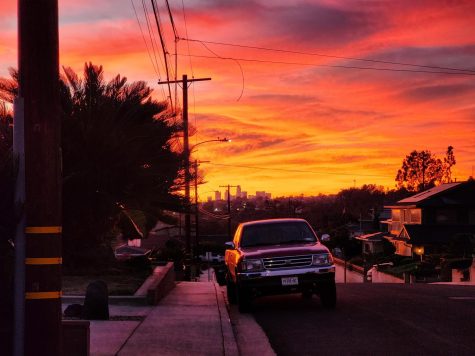
Summers are getting hotter and the weather much more unpredictable. The Earth has started its journey down the somber road of death, and has left its people to an uncertain demise. If you want to do your part, you can start by looking around you, see where you can stop use of unnecessary electricity and water. But also look around and find a way to enjoy the little things we see everyday, call a friend, keep living your life, because it is possible for change to come, it just takes a little belief and the introduction of some new laws.

